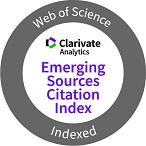La construcción del desarrollo desde los gobiernos sub nacionales: una visión desde la perspectiva de la gestión ambiental descentralizada
DOI:
https://doi.org/10.46631/jefas.2007.v12n23.02Keywords:
centralism, decentralization, decline, development, health, environmentAbstract
The transition of the Peruvian political system to decentralization has uncovered a number of factors that condition national development although by bringing the State closer to the people, the contrary should be expected. These elements underlie the existing culture of government and the ordinary citizen’s so that despite specifi c opportunities to foster development, they are not revealed in human development indicators but only on economic indicators. One of these elements is the natural reaction to changes in the power structure existing inside the centralist system that have been revealed by the slow transfer of competencies from the central to the sub-national governments. Another such element is the limited ability of sub-national governments that fail to respond to the challenge of demonstrating better competencies to address the citizens’ demands.
Downloads
References
BANCO MUNDIAL (BM). 2007. República del Perú. Análisis ambiental del Perú: retos para un desarrollo sostenible. Unidad de Desarrollo Sostenible, Región de América Latina y el Caribe, BM. Resumen Ejecutivo.
CARRIÓN, Julio F.; ZÁRATE, Patricia y SELIGSON, Mitchell A. 2006. Cultura política de la democracia en el Perú: 2006.
Lima: Instituto de Estudios Peruanos (IEP) / Vanderbilt University.
FINOT, Iván. 2005. Descentralización, transferencias territoriales y desarrollo local. Revista de la Cepal. Ago., n.º 86, págs. 29-46.
FONDO MONETARIO INTERNACIONAL (FMI). 2007. Perspectivas económicas: las Américas. Estudios Económicos y Financieros. Washington, D. C.: FMI. Resumen Ejecutivo.
PERÚ. CONSEJO NACIONAL DEL AMBIENTE (Conam). 2007. Estrategia nacional de diversidad biológica. Lima: Conam.
PERÚ. DEFENSORÍA DEL PUEBLO. 2007. Los conflictos socio-ambientales por actividades extractivas en el Perú. Informe Extraordinario. Lima: Defensoría del Pueblo.
PERÚ. 2007. Ley Orgánica del Poder Ejecutivo (Ley 29158).
PERÚ. 2004. Reglamento de Zonificación Ecológica y Económica (Decreto Supremo 087-2004-PCM).
PERÚ. 2003a. Ley de Bases de la Descentralización (Ley 27783).
PERÚ. 2003b. Ley Orgánica de Gobiernos Regionales (Ley 27867), modifi cada por Ley 27902.
PERÚ. 2003c. Ley Orgánica de Municipalidades (Ley 27972).
PERÚ. 2000. Ley General de Residuos Sólidos (Ley 27314).
PROGRAMA NACIONAL DE LAS NACIONES UNIDAS PARA EL DESARROLLO (PNUD). 2005. Informe de Desarrollo Humano 2005. Hagamos de la competitividad una oportunidad para todos. PNUD, Organización de las Naciones Unidas.
. PERÚ. 2006. SNV: Descentralización con ciudadanía en el Perú. Diálogo con actores regionales. Lima: PNUD / Servicio de
Cooperación al Desarrollo.
PULGAR VIDAL, Manuel. 2005. Gobernanza ambiental descentralizada. Oportunidades
para la sostenibilidad y el acceso a los recursos naturales para los sectores rurales pobres. Fondo Mink’a de Chorlaví.
Downloads
Published
How to Cite
Issue
Section
License
Copyright (c) 2021 Journal of Economics, Finance and Administrative Science

This work is licensed under a Creative Commons Attribution 4.0 International License.











